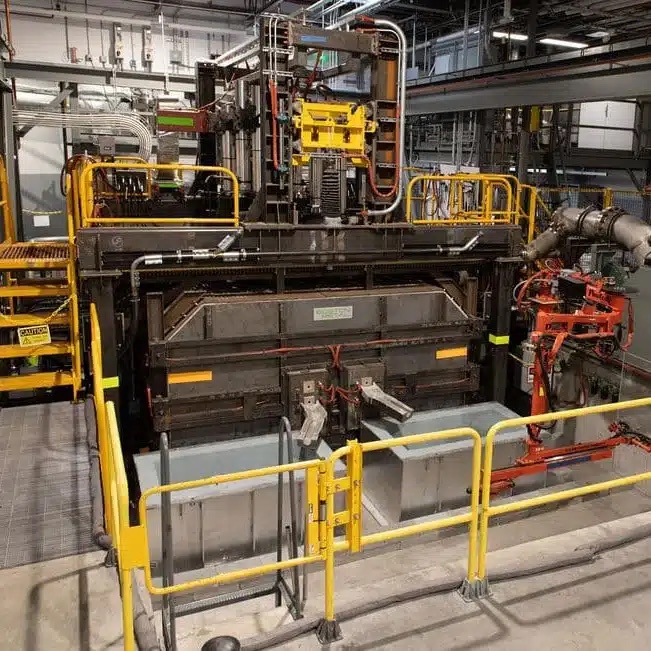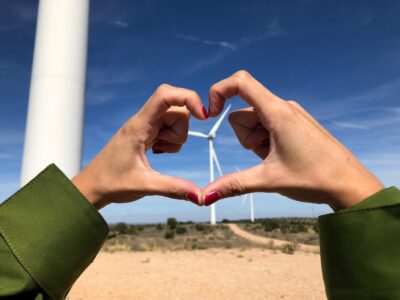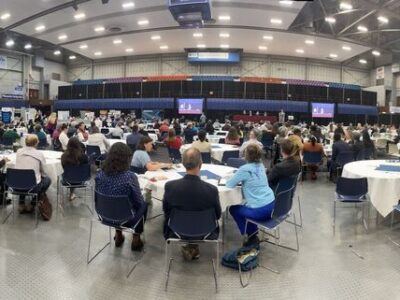The current administration’s climate program has primarily focused on transportation and renewable energy initiatives designed to speed the transition to electric vehicles (EVs) and solar/wind power and create thousands of new jobs along the way. One of its newest initiatives aims focus on manufacturing and supply chains.

Photo Courtesy Carter Wind
In late November 2023, the U.S. Department of Energy (DOE) announced that $275 million in funding would be used for seven projects to strengthen clean energy supply chains and accelerate domestic clean energy manufacturing in seven states nationwide. The announcement was made at the inaugural meeting of the White House Council on Supply Chain Resilience, which aims to support U.S. supply chains through nearly 30 new actions.
According to a press release, each of the seven projects is designed to make the U.S. more competitive, secure, and resilient by bolstering domestic supply chains for existing and emerging technologies.
Because they are tied to the 2021 Bipartisan Infrastructure Law, the projects will also leverage more than $600 million in private sector investments into small- and medium-sized manufacturers and create nearly 1,500 jobs.

Photo Courtesy Boston Metal
The projects will address what are deemed “critical clean energy supply chain vulnerabilities” by supporting key materials and components needed for the electric grid, transportation systems, wind energy, and energy-efficient buildings. Most of the selected projects will be in or adjacent to disadvantaged communities.
“With these historic investments, DOE will bring new economic opportunities and ensure these communities continue their key role in strengthening America’s national and energy security,” Jennifer Granholm, U.S. Secretary of Energy, said in a statement.

Photo Courtesy Boston Metal
According to the DOE, the global market for clean energy and carbon reduction technologies is anticipated to reach at least $23 trillion by 2030, which provides a “massive economic opportunity” for the U.S.
Selected projects with small- and medium-sized manufacturers will ramp up production of green technologies such as insulated windows, wind turbines, materials for grid components, and battery materials.
Long-term goals include reducing the nation’s reliance on fossil fuels, strengthening national defense and energy independence, and mitigating the climate crisis.
Here’s a look at the lead organizations and their proposed project sites as outlined in the DOE press release:
- Alpen High-Performance Products will retrofit existing facilities in Louisville, Colorado, and Vandergrift, Pennsylvania, to produce ultra-thin, triple and quad-pane insulated glass units for windows.
- Boston Metal will build a new plant in Weirton, West Virginia, to manufacture ultrapure chromium metal and high-temperature alloys needed for clean power, fuel cells, and green steel supply chains.
- Carter Wind Turbines will build a new facility in Vernon, Texas, to scale production of mid-sized turbines and improve wind energy access for remote, rural, and rugged terrains.
- CorePower Magnetics will retrofit an existing factory in Pittsburgh that melts and casts advanced magnetic amorphous alloys for grid components.
- Nanoramic Laboratories will build a new facility in Bridgeport, Connecticut, to manufacture lithium iron phosphate battery electrodes for grid storage.
- LuxWall Inc. will build a new factory in Detroit to manufacture vacuum-insulated glass window units, one of the highest energy-efficient return-on-investment options used to retrofit buildings.
- MP Assets Corporation will build a project in Virginia to manufacture lithium-ion battery separators, which are important for EV supply chains.





